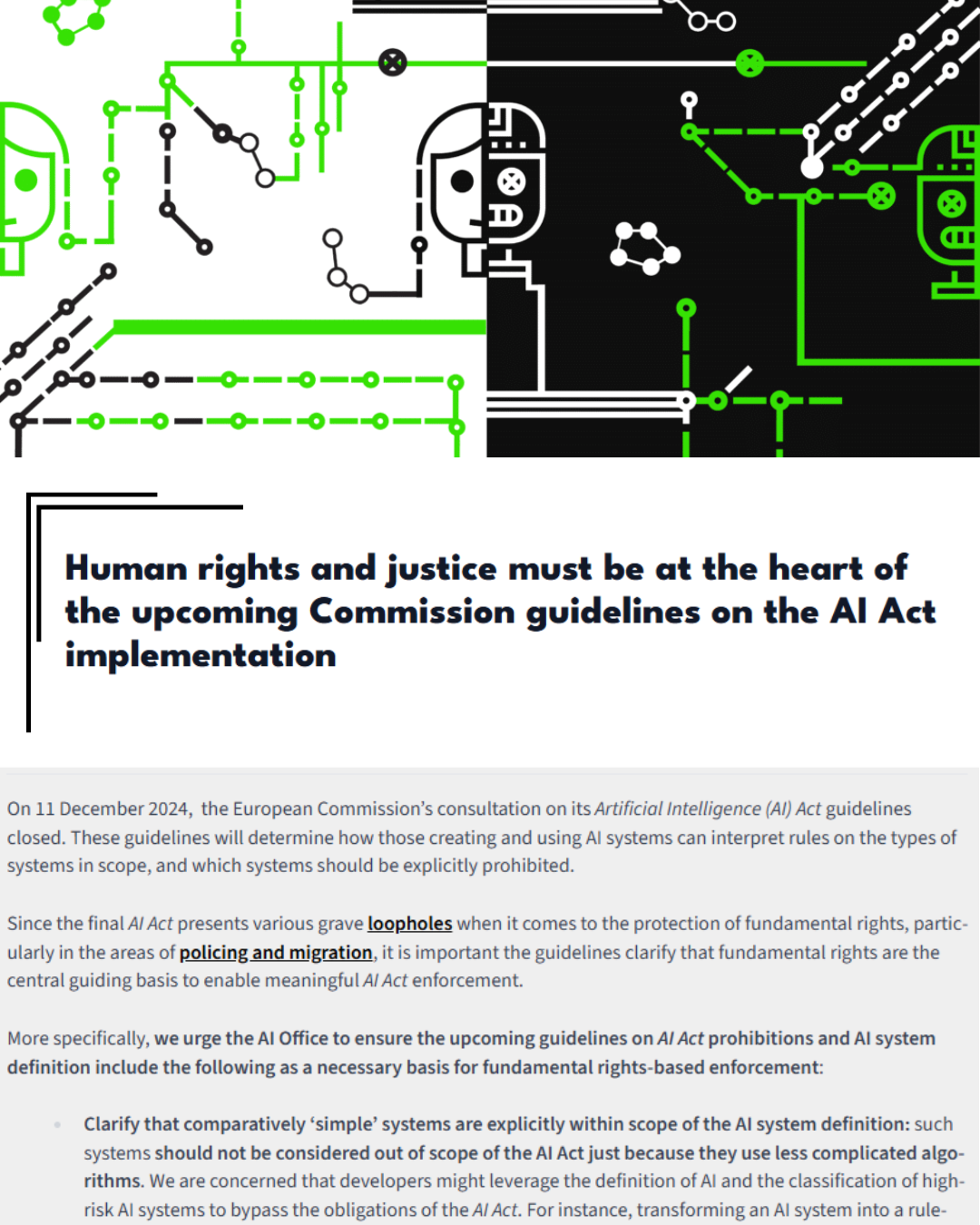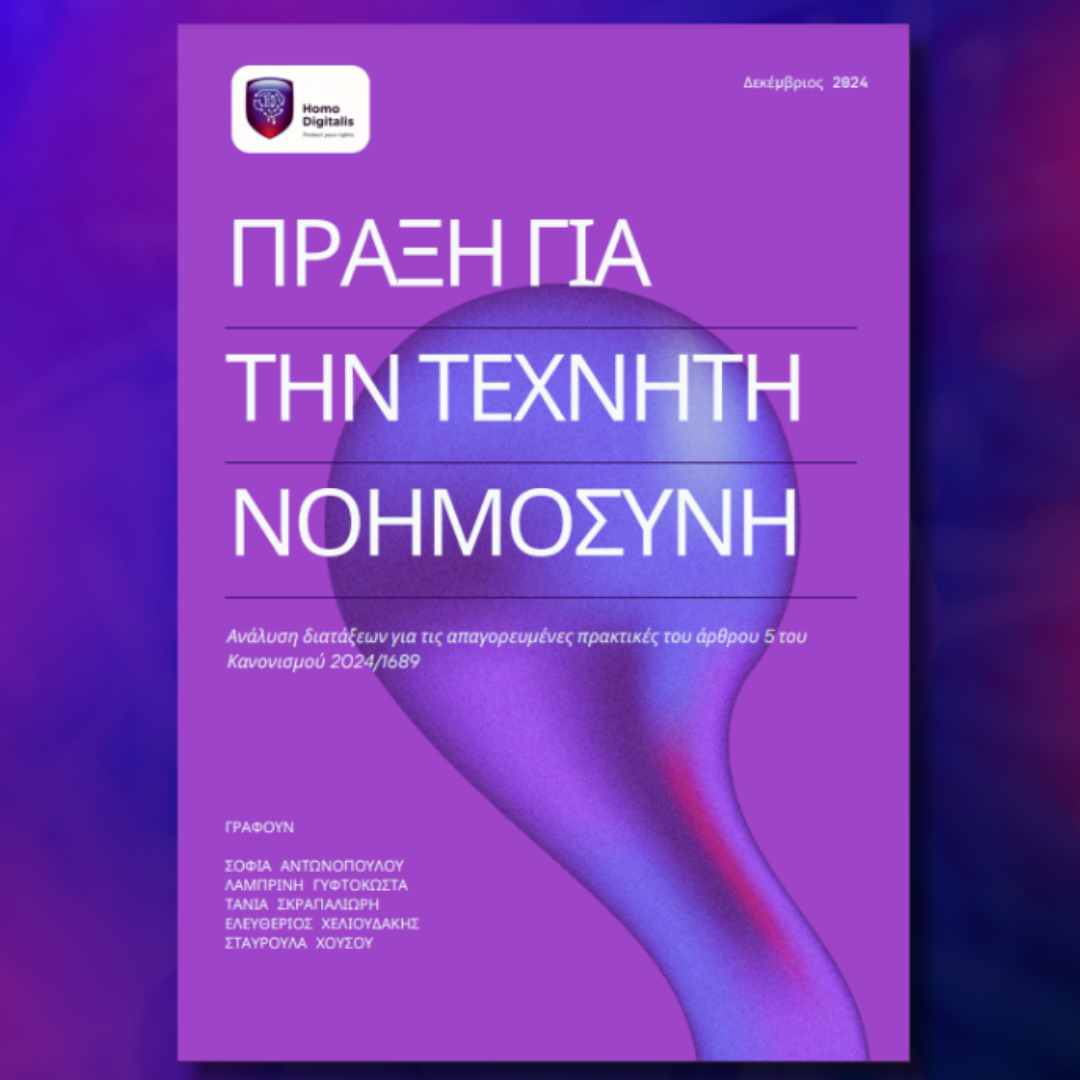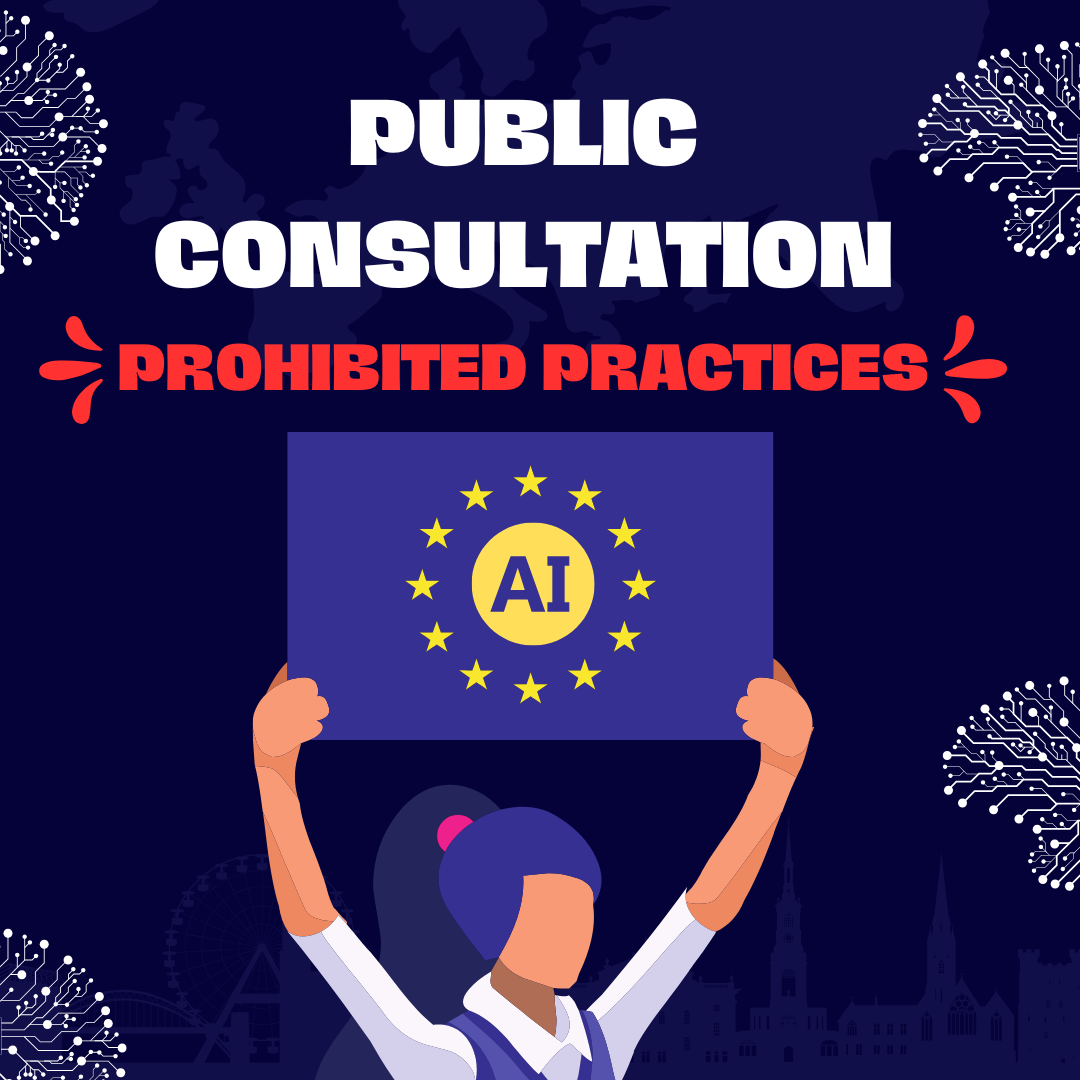Joint Statement on the Upcoming European Commission Guidelines on Prohibited Practices of the AI Act
We are publishing a joint statement on the upcoming European Commission Guidelines on Prohibited Practices of the AI Act.
On December 11, 2024, the European Commission completed its public consultation on the interpretation of the definition of an AI system and on prohibited AI practices, in accordance with the provisions of Regulation 2024/1689 (AI Act). Homo Digitalis participated in the related process.
In the context of the issuance of the expected guidelines by the Commission, concerns remain about potential gaps that could jeopardize fundamental rights. For this reason, and together with more than 25 civil society organizations, academics, and other experts, we are issuing a statement today, urging the AI Office and the European Commission to ensure specific demands.
You can read our joint statement here.
Homo Digitalis Collaborates Once Again with the Digital World Summit Greece
We are delighted to announce that, for yet another year, the Digital World Summit Greece (DWS Greece) and Homo Digitalis are moving forward with a strategic partnership!
The Digital World Summit Greece (DWS Greece) aims to promote the democratic governance of new technologies. As a dialogue platform, it brings together diverse stakeholders and groups, shaping policies from the grassroots level to the top on issues related to artificial intelligence, platforms, the Internet of Things, and broader technological domains.
Homo Digitalis has actively supported DWS Greece since its inception, and it is a great honor for us to continue doing so dynamically. Together, we aim to contribute to the maturation of public discourse in Greece on issues related to digital rights.
You can learn more about the activities of the Digital World Summit Greece on their website, here.
We Publish Our Third Study on the AI Act, Focusing on Article 5 & Prohibited Practices
Today, Homo Digitalis publishes its third study on Regulation 2024/1689, the now widely known AI Act, titled “AI Act: Analysis of the Provisions on Prohibited Practices under Article 5 of Regulation 2024/1689.”
The study’s authors are Sofia Antonopoulou, Lamprini Gyftokosta, Tania Skrapalioti, Eleftherios Chelioudakis, and Stavroula Chousou.
This analysis systematically examines each provision of Article 5 of the AI Act, covering manipulative or deceptive techniques, exploitation of vulnerabilities, social behavior scoring, facial recognition databases, crime prediction, emotion inference, biometric categorization systems, and remote biometric identification.
We provide targeted questions highlighting key aspects of these provisions, identifying “gray areas” where ambiguities, overlaps, or interpretative challenges arise. Additionally, we present concrete examples to support our concerns and formulate specific questions for clarification by the European Commission’s AI Office and national legislators.
Like our previous studies (published in October and November 2024), this study aims to assist the Ministry of Digital Governance in implementing the AI Act in Greece. Through in-depth analysis and well-founded arguments, we seek to enrich public debate and empower more civil society organizations to engage actively.
You can read our study “AI Act: Analysis of the Provisions on Prohibited Practices under Article 5 of Regulation 2024/1689” [here].
Homo Digitalis participated in AI Office’s consultation on Prohibited Practices under the AI Act
In November 2024, the European Commission’s Artificial Intelligence (AI) Office launched a consultation on AI Act prohibitions and AI system definition.
The guidelines under development will help national competent authorities as well as providers and deployers in complying with the AI Act’s rules on such AI practices ahead of the application of the relevant provisions on 2 February 2025.
Homo Digitalis participated in this public consultation process by submitting our input, in an attempt to highlight challenges and provide further clarity on practical aspects and use cases.
The authors’ team of our public consultation is composed of our Director on Human Rights & Artificial Intelligence, Lamprini Gyftokosta and our members Sophia Antonopoulou and Stavrina Chousou.
You can read our input here.
Stay tuned, since our dedicated report on the AI Act and its provisions on Prohibited Practices is to be published soon!



